THE POLITICAL SYSTEM OF THE USA By Romanenko

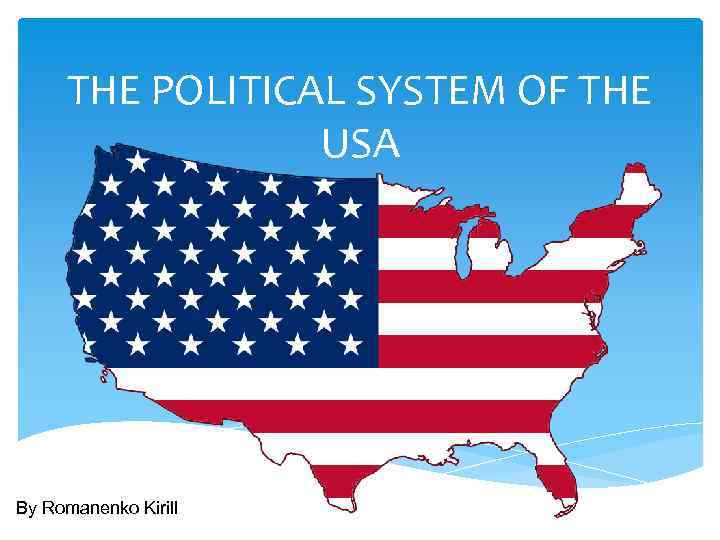
THE POLITICAL SYSTEM OF THE USA By Romanenko Kirill
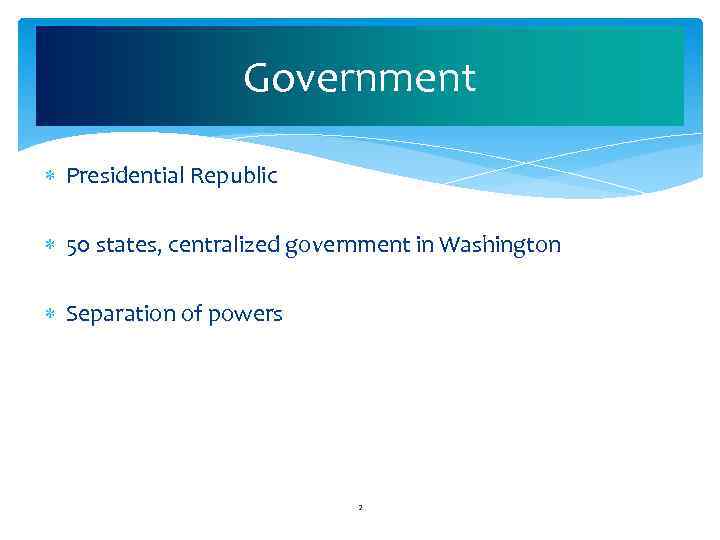
Government Presidential Republic 50 states, centralized government in Washington Separation of powers 2
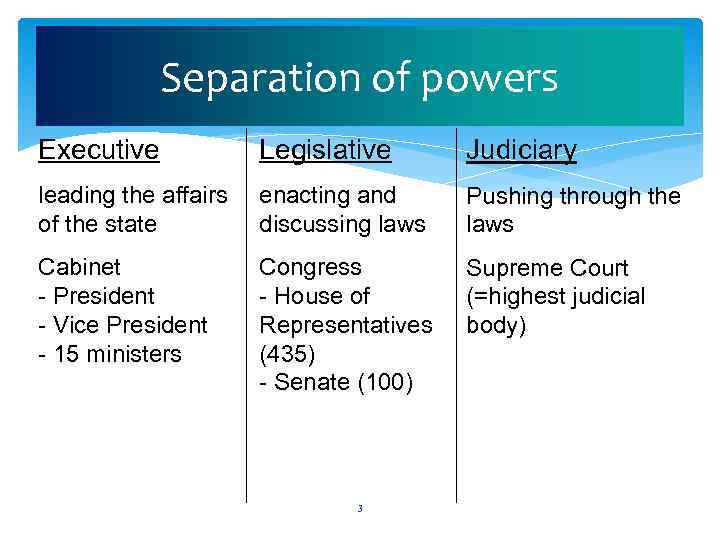
Separation of powers Executive Legislative Judiciary leading the affairs of the state enacting and discussing laws Pushing through the laws Cabinet - President - Vice President - 15 ministers Congress - House of Representatives (435) - Senate (100) Supreme Court (=highest judicial body) 3
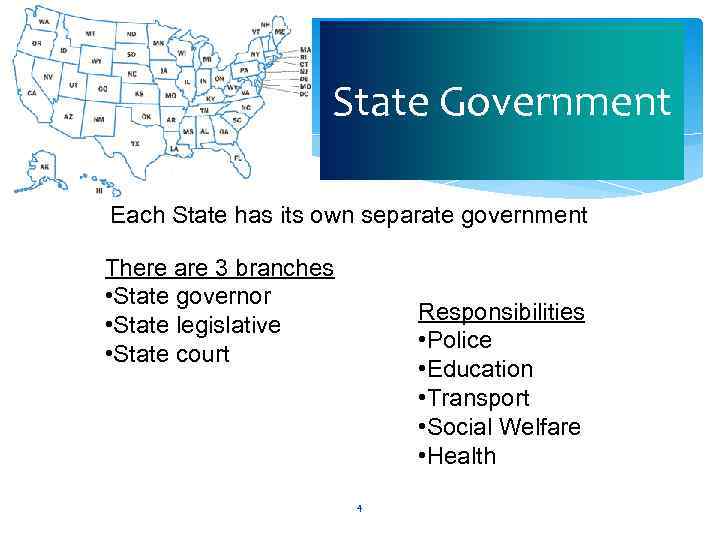
State Government Each State has its own separate government There are 3 branches • State governor • State legislative • State court Responsibilities • Police • Education • Transport • Social Welfare • Health 4
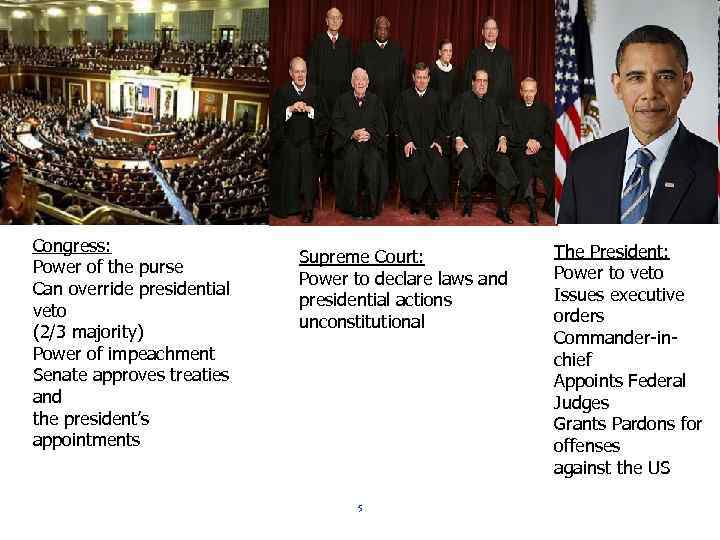
Congress: Power of the purse Can override presidential veto (2/3 majority) Power of impeachment Senate approves treaties and the president’s appointments Supreme Court: Power to declare laws and presidential actions unconstitutional 5 The President: Power to veto Issues executive orders Commander-inchief Appoints Federal Judges Grants Pardons for offenses against the US
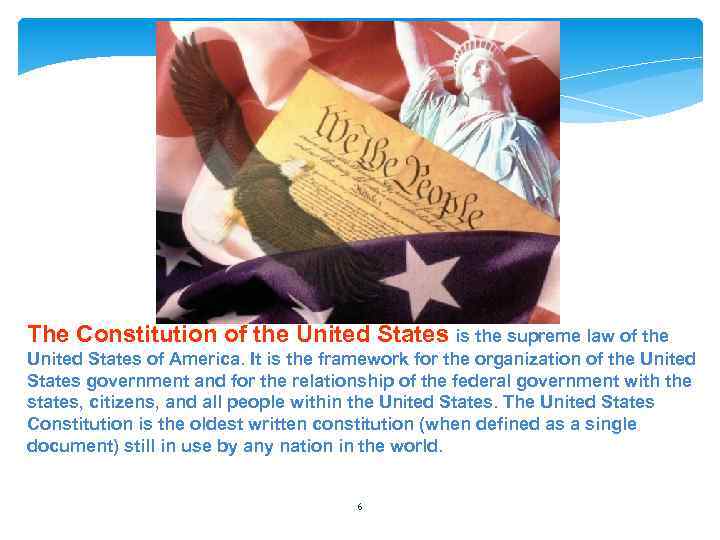
The Constitution of the United States is the supreme law of the United States of America. It is the framework for the organization of the United States government and for the relationship of the federal government with the states, citizens, and all people within the United States. The United States Constitution is the oldest written constitution (when defined as a single document) still in use by any nation in the world. 6
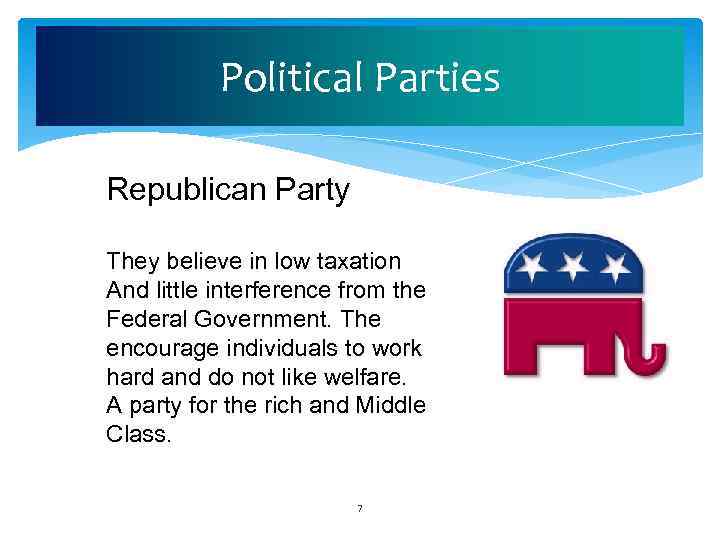
Political Parties Republican Party They believe in low taxation And little interference from the Federal Government. The encourage individuals to work hard and do not like welfare. A party for the rich and Middle Class. 7
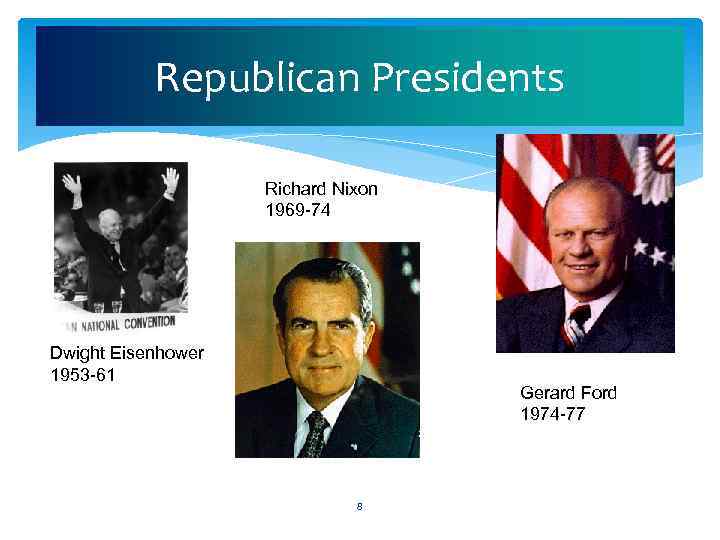
Republican Presidents Richard Nixon 1969 -74 Dwight Eisenhower 1953 -61 Gerard Ford 1974 -77 8
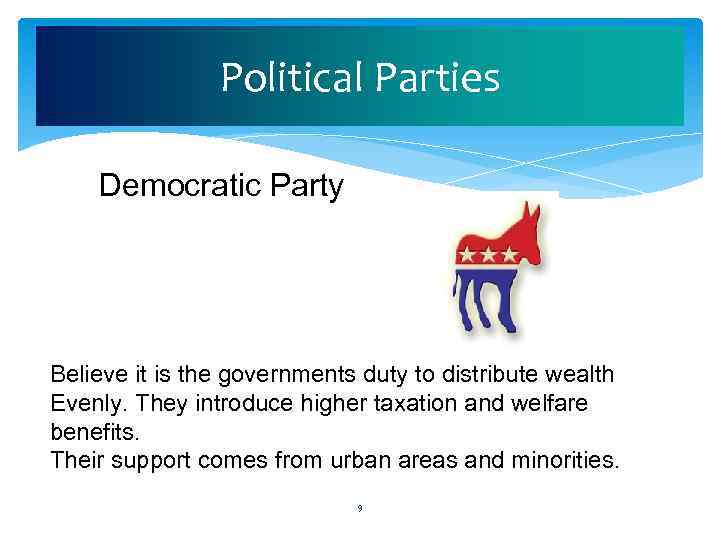
Political Parties Democratic Party Believe it is the governments duty to distribute wealth Evenly. They introduce higher taxation and welfare benefits. Their support comes from urban areas and minorities. 9
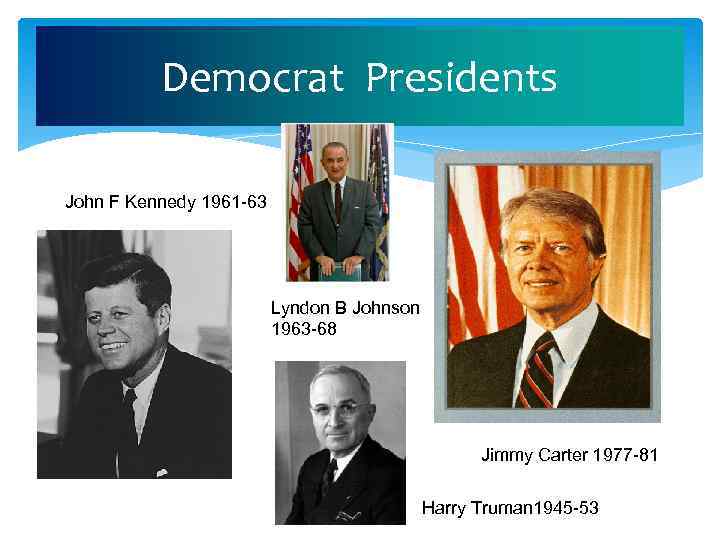
Democrat Presidents John F Kennedy 1961 -63 Lyndon B Johnson 1963 -68 Jimmy Carter 1977 -81 10 Harry Truman 1945 -53
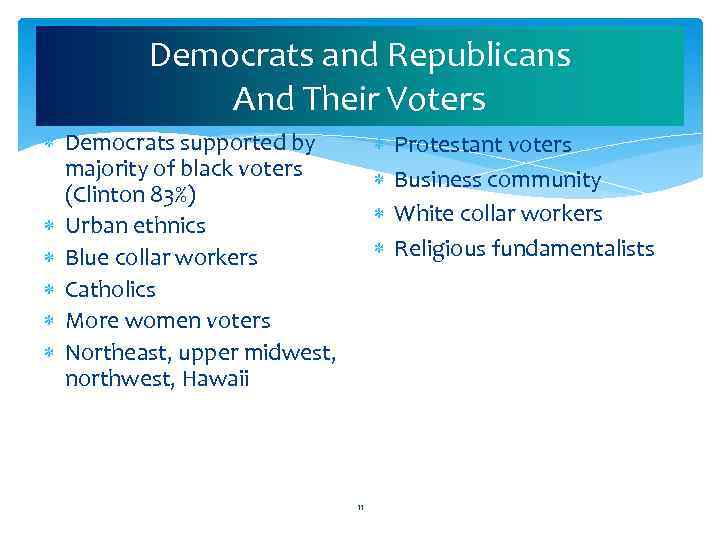
Democrats and Republicans And Their Voters Democrats supported by majority of black voters (Clinton 83%) Urban ethnics Blue collar workers Catholics More women voters Northeast, upper midwest, northwest, Hawaii 11 Protestant voters Business community White collar workers Religious fundamentalists
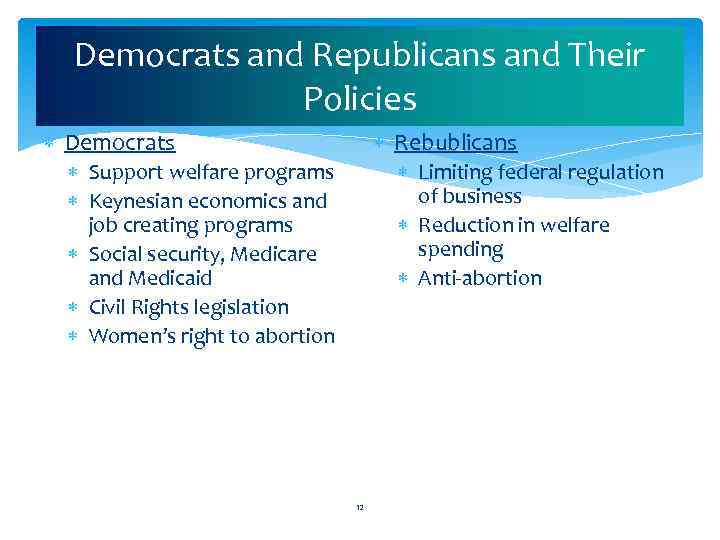
Democrats and Republicans and Their Policies Democrats Rebublicans Support welfare programs Keynesian economics and job creating programs Social security, Medicare and Medicaid Civil Rights legislation Women’s right to abortion Limiting federal regulation of business Reduction in welfare spending Anti-abortion 12
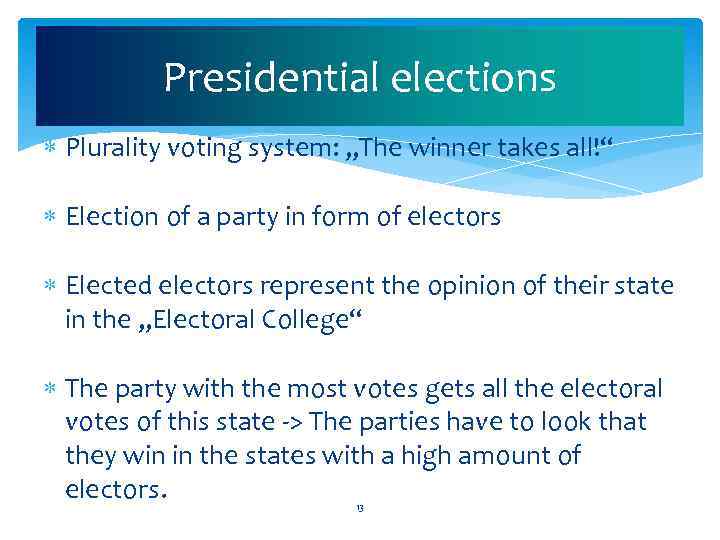
Presidential elections Plurality voting system: „The winner takes all!“ Election of a party in form of electors Elected electors represent the opinion of their state in the „Electoral College“ The party with the most votes gets all the electoral votes of this state -> The parties have to look that they win in the states with a high amount of electors. 13
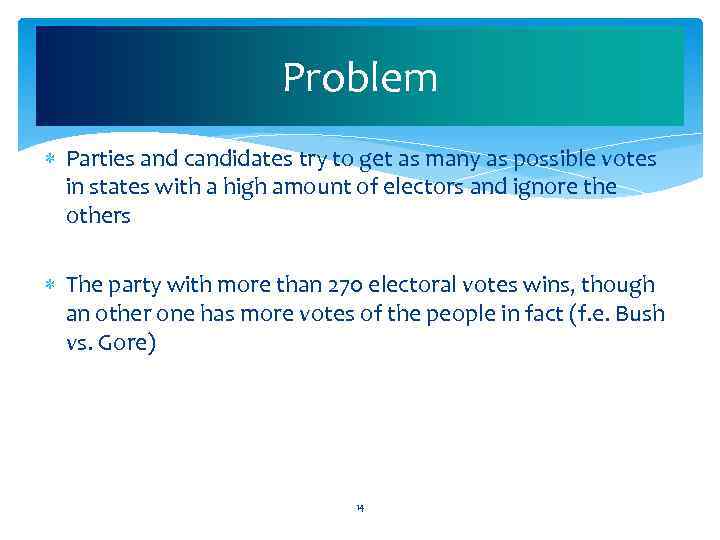
Problem Parties and candidates try to get as many as possible votes in states with a high amount of electors and ignore the others The party with more than 270 electoral votes wins, though an other one has more votes of the people in fact (f. e. Bush vs. Gore) 14
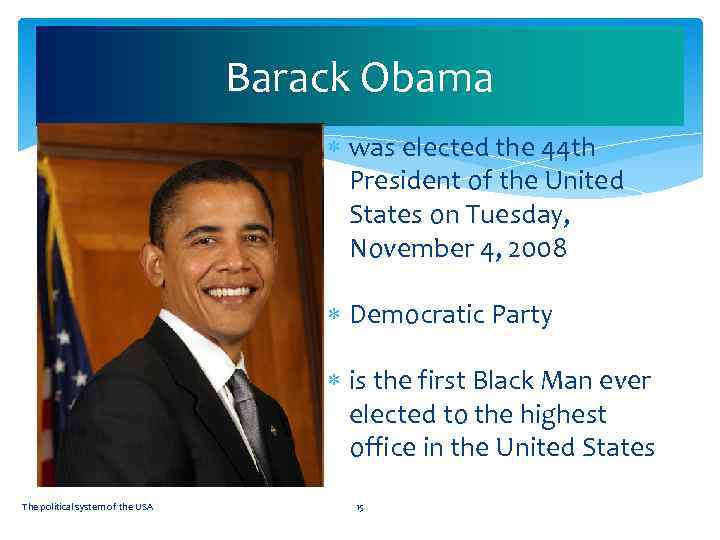
Barack Obama was elected the 44 th President of the United States on Tuesday, November 4, 2008 Democratic Party is the first Black Man ever elected to the highest office in the United States The political system of the USA 15
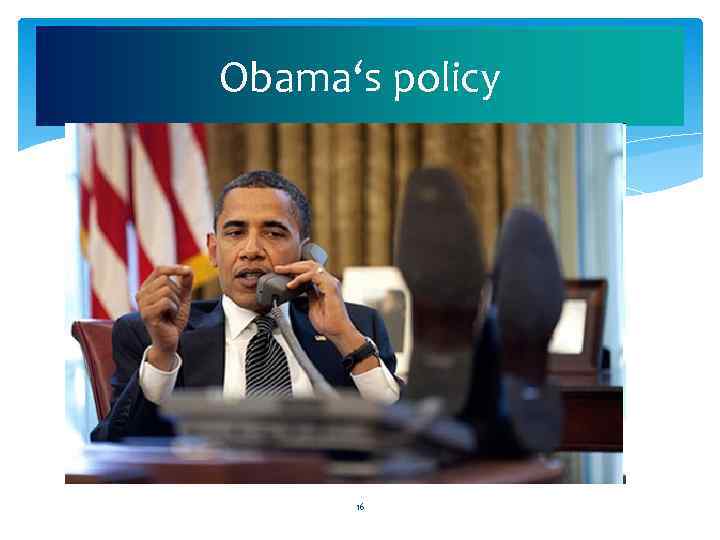
Obama‘s policy 16
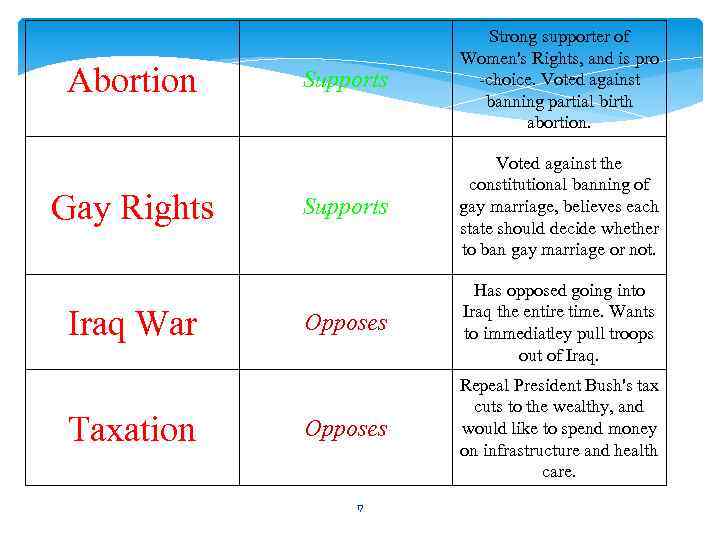
Abortion Gay Rights Iraq War Taxation Supports Strong supporter of Women's Rights, and is pro -choice. Voted against banning partial birth abortion. Supports Voted against the constitutional banning of gay marriage, believes each state should decide whether to ban gay marriage or not. Opposes Has opposed going into Iraq the entire time. Wants to immediatley pull troops out of Iraq. Opposes Repeal President Bush's tax cuts to the wealthy, and would like to spend money on infrastructure and health care. 17
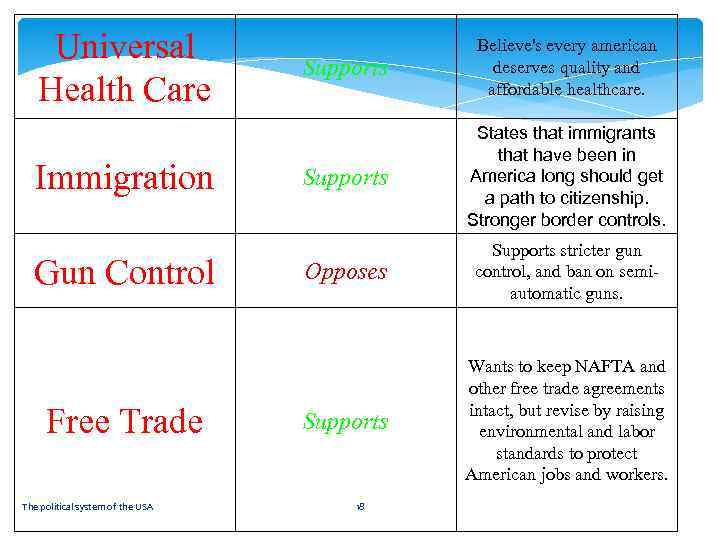
Universal Health Care Immigration Gun Control Free Trade The political system of the USA Supports Believe's every american deserves quality and affordable healthcare. Supports States that immigrants that have been in America long should get a path to citizenship. Stronger border controls. Opposes Supports stricter gun control, and ban on semiautomatic guns. Supports Wants to keep NAFTA and other free trade agreements intact, but revise by raising environmental and labor standards to protect American jobs and workers. 18
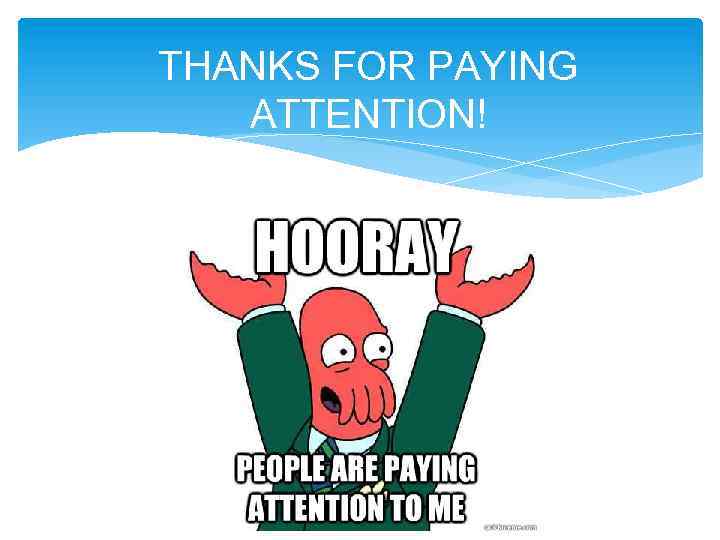
THANKS FOR PAYING ATTENTION! 19

